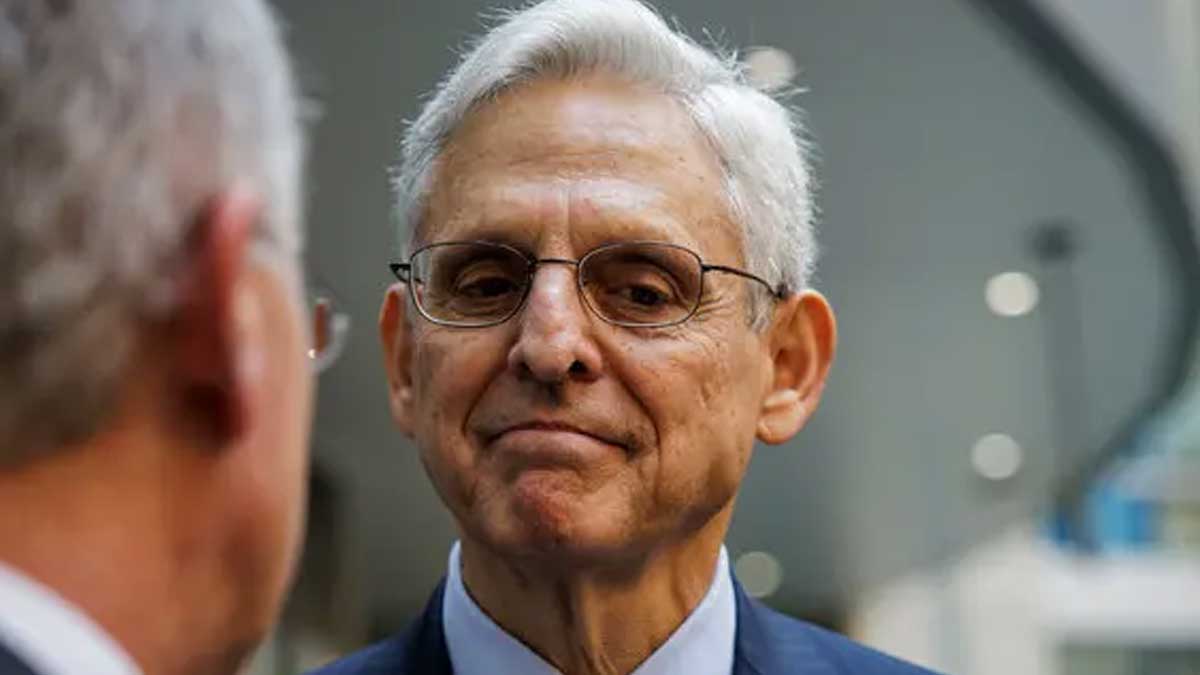- Home
- Billionaires
- Investing Newsletters
- 193CC 1000
- Article Layout 2
- Article Layout 3
- Article Layout 4
- Article Layout 5
- Article Layout 6
- Article Layout 7
- Article Layout 8
- Article Layout 9
- Article Layout 10
- Article Layout 11
- Article Layout 12
- Article Layout 13
- Article Layout 14
- Article Sidebar
- Post Format
- pages
- Archive Layouts
- Post Gallery
- Post Video Background
- Post Review
- Sponsored Post
- Leadership
- Business
- Money
- Small Business
- Innovation
- Shop
Recent Posts
DOJ Declines to Prosecute Garland Despite Contempt Charge

The Justice Department announced on Friday that it will not pursue charges against Attorney General Merrick Garland, as reported by multiple outlets. This decision follows the House Republicans’ move to hold Garland in contempt of Congress for failing to provide subpoenaed audio tapes of President Joe Biden.
The Associated Press stated that the Justice Department concluded Garland’s refusal to submit the tapes did not constitute a crime, thereby ending the case against him. The Biden administration had invoked executive privilege over the interview tapes on the final day Garland was required to comply with the subpoena from House Republicans. These tapes pertained to Biden’s handling of classified documents during an interview with Special Counsel Robert Hur.
In a letter to House Speaker Mike Johnson, R-La., the Justice Department explained that their decision was rooted in a long-standing policy not to prosecute officials for contempt of Congress when subpoenas are defied due to executive privilege claims. Garland has asserted that Congress lacked a legitimate reason to request the tapes, suggesting that releasing them could compromise future investigations of the White House, as reported by NPR.
On Wednesday, the House voted 216-207 to hold Garland in contempt of Congress, with nearly all Republicans supporting the resolution. This vote, however, was largely symbolic, as the Justice Department has the authority to decide on prosecuting contempt charges. Historically, the department has refrained from prosecuting such cases, particularly against members of the current administration. The DOJ has been under Republican scrutiny amidst the special counsel’s prosecution of former President Donald Trump for his efforts to overturn the 2020 election and Hur’s investigation into Biden.
Details of Hur’s interviews with Biden were disclosed in a special counsel report published in February. Hur found that Biden had willfully retained classified documents but decided against bringing charges, citing the difficulty of convincing a jury of misconduct. Hur’s report noted, “It would be difficult to convince a jury that they should convict him – by then a former president well into his eighties – of a serious felony that requires a mental state of willfulness.
Recent Posts
Categories
- 193cc Digital Assets2
- 5G1
- Aerospace & Defense46
- AI37
- Arts3
- Banking & Insurance11
- Big Data3
- Billionaires449
- Boats & Planes1
- Business328
- Careers13
- Cars & Bikes76
- CEO Network1
- CFO Network17
- CHRO Network1
- CIO Network1
- Cloud10
- CMO Network18
- Commercial Real Estate7
- Consultant1
- Consumer Tech180
- CxO1
- Cybersecurity68
- Dining1
- Diversity, Equity & Inclusion4
- Education7
- Energy8
- Enterprise Tech29
- Events11
- Fintech1
- Food & Drink2
- Franchises1
- Freelance1
- Future Of Work2
- Games141
- GIG1
- Healthcare78
- Hollywood & Entertainment186
- Houses1
- Innovation42
- Investing2
- Investing Newsletters4
- Leadership65
- Lifestyle11
- Manufacturing1
- Markets20
- Media193
- Mobile phone1
- Money13
- Personal Finance2
- Policy567
- Real Estate1
- Research6
- Retail1
- Retirement1
- Small Business1
- SportsMoney33
- Style & Beauty1
- Success Income1
- Taxes2
- Travel10
- Uncategorized8
- Vices1
- Watches & Jewelry2
- world's billionaires418
Related Articles
Trump Moves $4B Stake in Truth Social Parent, Stock Drops 6%
Donald Trump recently transferred his 57% stake in Trump Media & Technology...
By 193cc Agency CouncilDecember 20, 2024House Rejects Trump-Backed Funding Bill, Shutdown Looms
The U.S. House of Representatives rejected a new government funding bill on...
By 193cc Agency CouncilDecember 20, 2024Trump Named Time’s Person of the Year for Second Time
On Thursday, Time magazine honored Donald Trump as its “Person of the...
By 193cc Agency CouncilDecember 12, 2024Meta Donates $1 Million to Trump’s Inaugural Fund
Meta, the parent company of Facebook and Instagram, has confirmed a $1...
By 193cc Agency CouncilDecember 12, 2024















Leave a comment